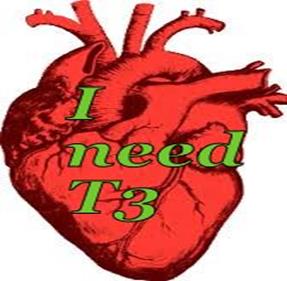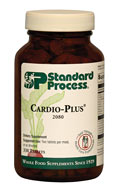Heart Problems and Thyroid

|
George Carlin |
One could have inherited a heart problem of any kind due to genetics, or there can be other reasons you need to discover as the cause. But many thyroid patients have discovered that their heart issues were directly related to being hypothyroid, or having problems with their cortisol or iron levels contributing to continued hypothyroidism.
The answer for many appears to be from low levels of T3 - the active thyroid hormone. The thyroid cells are responsible for the synthesis and secretion two hormones T4 and T3. The thyroid synthesizes thyroid hormones from the mineral iodine and the amino acid tyrosine with four atoms of iodine in T4 and three in T3. The thyroid secretes mainly (80%) T4, but when T4 enters target cells, one atom of iodine is removed from it converting it into T3. T3 is the thyroid hormone that our cells recognize best; it is the only biologically active thyroid hormone in the body. T4 can be thought of as a “preparatory” hormone for T3; T4 is converted into T3 in the liver, kidneys and gut.
Hormones of the thyroid T4 and T3 influence the metabolism of each and every cell in our bodies. T3 is the more potent of the two hormones. It has many effects. Among the most prominent of these are: an increase in metabolic rate (seen by a rise in body temperature and the uptake of oxygen); an increase in the rate and strength of the heartbeat.
Your heart’s health and your entire cardiovascular system are highly dependent on adequate levels of T3 for its well-being. T3 improves contraction and thus cardiac output, for one. So if it’s low, output goes down. T3 keeps your metabolism running well, which helps clear out excess arterial fatty deposits. So if it’s low, cholesterol and fatty acids go up. Low thyroid means high cholesterol. But taking statin drugs makes everything worse.











